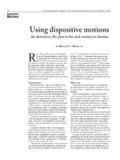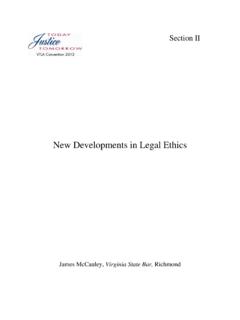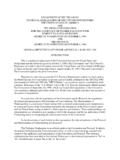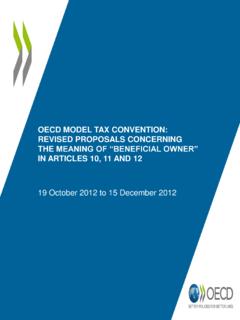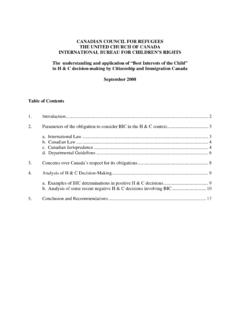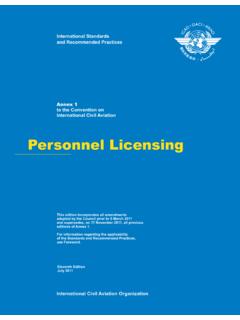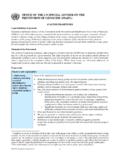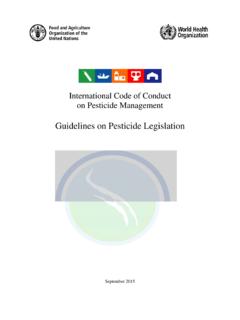Transcription of New Developments in Legal Ethics - vtla.us
1 Section II New Developments in Legal Ethics James McCauley, Virginia State Bar, Richmond 1 THREATENING CRIMINAL PROSECUTION OR DISCIPLINARY ACTION TO OBTAIN A CIVIL ADVANTAGE James M. McCauley, Ethics Counsel Virginia State Bar Richmond, Virginia I. THE ABA APPROACH A lawyer s conduct of threatening criminal prosecution to obtain a civil advantage provides a fascinating insight into the national and state bars approach to Ethics -- and provides another excellent example of why lawyers cannot follow their "moral instinct" or "smell test" when making Ethics decisions. There is a substantial difference between the approach taken by the American Bar Association, which has eliminated the specific rule from the ABA Model Rules and the approach taken by Virginia and other states which have retained specific rules prohibiting such conduct.
2 The old ABA Model Code contained a fairly straight-forward prohibition. A lawyer shall not present, participate in presenting, or threaten to present criminal charges solely to obtain an advantage in a civil matter. ABA Model Code DR 7-105(A). When the ABA adopted its Model Rules in 1983, it deliberately dropped this provision. The ABA explained its reasoning in a LEO issued about ten years later. The deliberate omission of DR 7-105(A)'s language or any counterpart from the Model Rules rested on the drafters' position that "extortionate, fraudulent, or otherwise abusive threats were covered by other, more general prohibitions in the Model Rules and thus that there was no need to outlaw such threats specifically.
3 " C. W. Wolfram, Modern Legal Ethics (1986) , at 718, citing Model Rule Legal background note (Proposed Final Draft, May 30, 1981), (last paragraph). Model Rules that both provide 2an explanation of why the omitted provision DR 7-105(A) was deemed unnecessary and set the limits on legitimate use of threats of prosecution are Rules , , and ABA LEO 363 (7/6/92) (footnote omitted). In defending its decision, the ABA first dealt with the possibility that such threats could amount to extortion. Model Rule (b) provides that [i]t is beyond the scope of the Committee's jurisdiction to define extortionate conduct, but we note that the Model Penal Code does not criminalize threats of prosecution where the property obtained by threat of accusation, exposure, lawsuit or other invocation of official action was honestly claimed as restitution for harm done in the circumstances to which such accusation, exposure, lawsuit or other official action relates, or as compensation for property or lawful services.
4 Model Penal Code, (emphasis added); see also (3) (threats are not criminally punishable if they are based on a claim of right, or if there is an honest belief that the charges are well founded.) As to the crime of compounding, we also note that the Model Penal Code, , in defining that crime, provides that: A person commits a misdemeanor if he accepts any pecuniary benefit in consideration of refraining from reporting to law enforcement authorities the commission of any offense or information relating to an offense. It is an affirmative defense to prosecution under this Section that the pecuniary benefit did not exceed an amount which the actor believed to be due as restitution or indemnification for harm caused by the offense.
5 (emphasis supplied) Id. (emphases added; emphasis in original indicated by underscore). See Model Penal Code ("Theft by Extortion") ("It is an affirmative defense to prosecution based on paragraphs (2), (3) or (4) that the property obtained by threat of accusation, exposure, lawsuit or other invocation of official action was honestly claimed as restitution or indemnification for harm done in the circumstances to which such accusation, exposure, lawsuit or other official action relates, or as compensation for property or lawful 3services."); Model Penal Code ( Compounding ) ("A person commits a misdemeanor if he accepts or agrees to accept any pecuniary benefit in consideration of refraining from reporting to law enforcement authorities the commission or suspected commission of any offense or information relating to an offense.)
6 It is an affirmative defense to prosecution under this Section that the pecuniary benefit did not exceed an amount which the actor believed to be due as restitution or indemnification for harm caused by the offense."). The ABA concluded as follows: The Committee concludes, for reasons to be explained, that the ABA Model Rules do not prohibit a lawyer from using the possibility of presenting criminal charges against the opposing party in a civil matter to gain relief for her client, provided that the criminal matter is related to the civil claim, the lawyer has a well founded belief that both the civil claim and the possible criminal charges are warranted by the law and the facts, and the lawyer does not attempt to exert or suggest improper influence over the criminal process.
7 It follows also that the Model Rules do not prohibit a lawyer from agreeing, or having the lawyer's client agree, in return for satisfaction of the client's civil claim for relief, to refrain from pursuing criminal charges against the opposing party as part of a settlement agreement, so long as such agreement is not itself in violation of law. ABA LEO 363 (7/6/92). The ABA also explained that wrongful threats of criminal prosecution could amount to violations of other ABA Model Rules, such as: Rule (d) and (e) provide that it is professional misconduct for a lawyer to engage in conduct prejudicial to the administration of justice and to state or imply an ability improperly to influence a government official or agency.
8 Rule (Respect for Rights of Third Persons) prohibits a lawyer from using means that "have no 4substantial purpose other than to embarrass, delay, or burden a third person.." A lawyer who uses even a well-founded threat of criminal charges merely to harass a third person violates Rule See also Hazard & Hodes, supra, :104. Rule (Truthfulness in Statements to Others) imposes a duty on lawyers to be truthful when dealing with others on a client's behalf. A lawyer who threatens criminal prosecution, without any actual intent to so proceed, violates Rule Finally, Rule (Meritorious Claims and Contentions) prohibits an advocate from asserting frivolous claims.
9 A lawyer who threatens criminal prosecution that is not well founded in fact and in law, or threatens such prosecution in furtherance of a civil claim that is not well founded, violates Rule ABA LEO 363 (7/6/92). The Restatement also deliberately excluded this prohibition -- dealing with the issue in an obscure comment to the rule governing statements to a non-client. Beyond the law of misrepresentation, other civil or criminal law may constrain a lawyer's statements, for example, the criminal law of extortion. In some jurisdictions, lawyer codes prohibit a lawyer negotiating a civil claim from referring to the prospect of filing criminal charges against the opposing party.
10 Restatement (Third) of the Law Governing Lawyers 98 cmt. f (2000). The ABA approach is the same with respect to a lawyer s threat of a bar complaint against his adversary. In ABA Formal Op. 383 (7/5/94), the ABA held that a lawyer's threat to file a disciplinary complaint against his adversary to gain an advantage in a civil case would violate the Model Rules if: the adversary's conduct required reporting; the misconduct was unrelated to the civil matter; the disciplinary charges are not well-founded in fact or law: or the threat is designed solely to harass. II. APPROACH TAKEN BY OTHER STATES 5 Even as of 1992, the ABA explained that a number of states had chosen to continue the prohibition on such threats even after they shifted to a Model Rules format.


